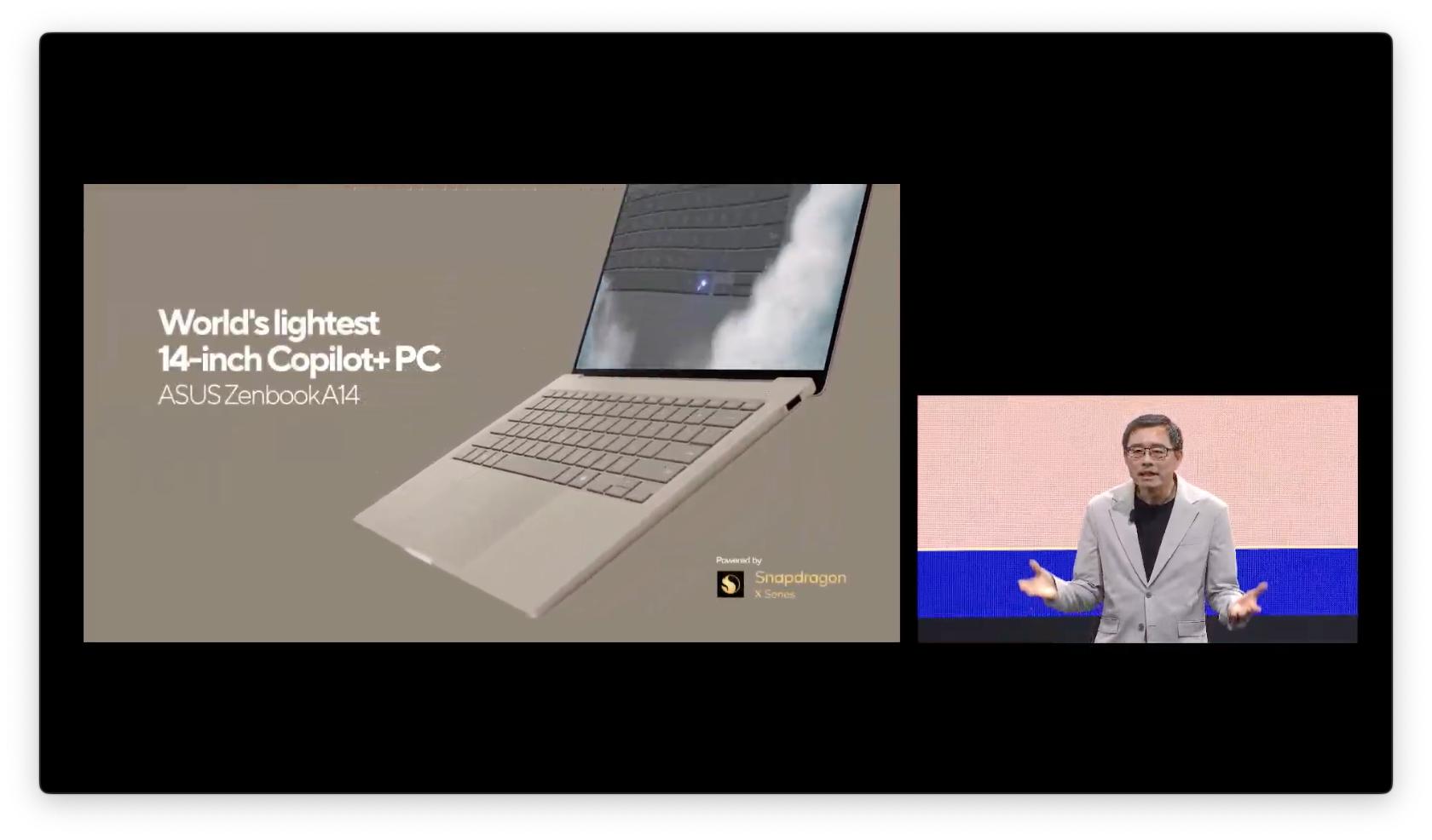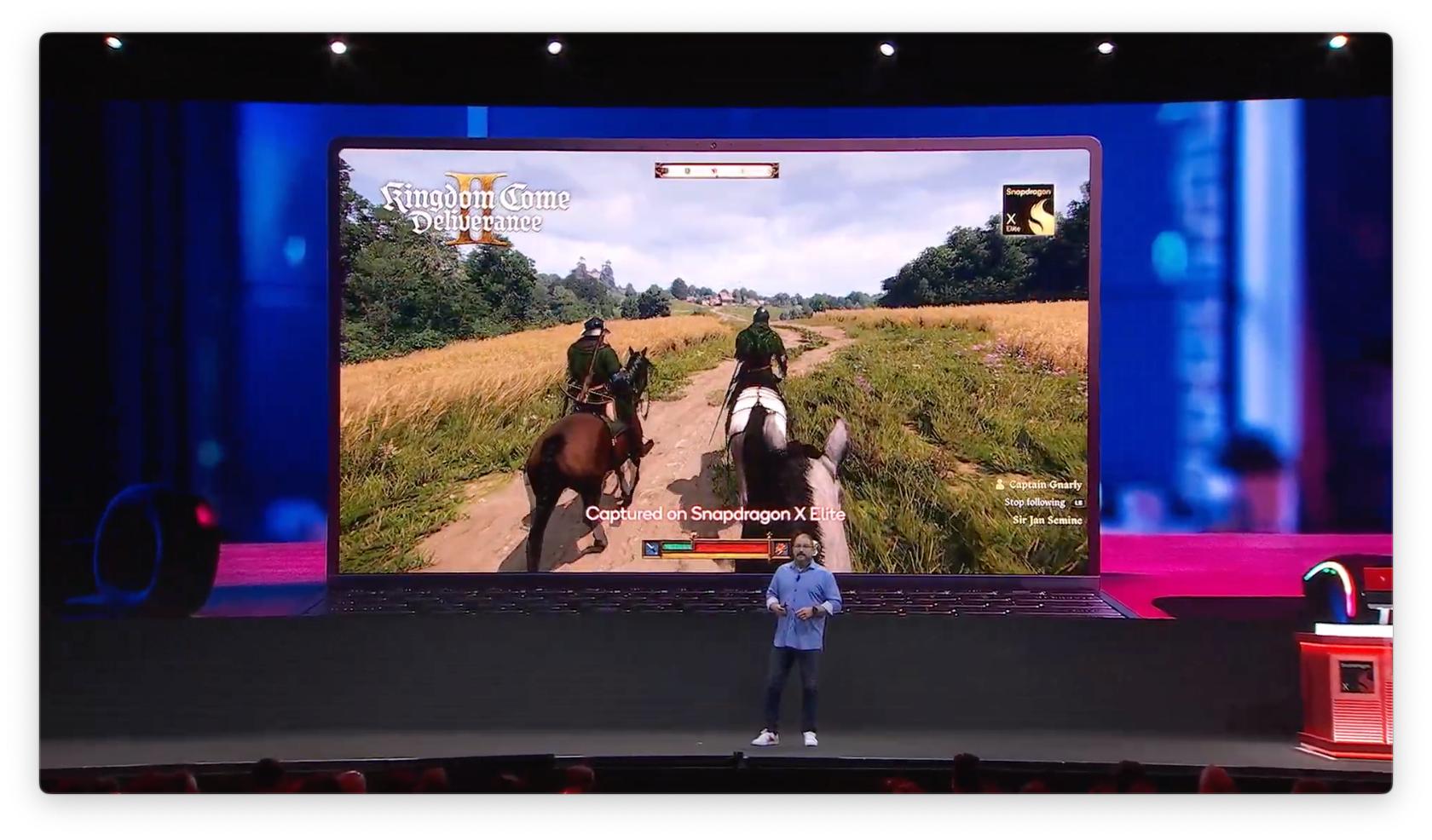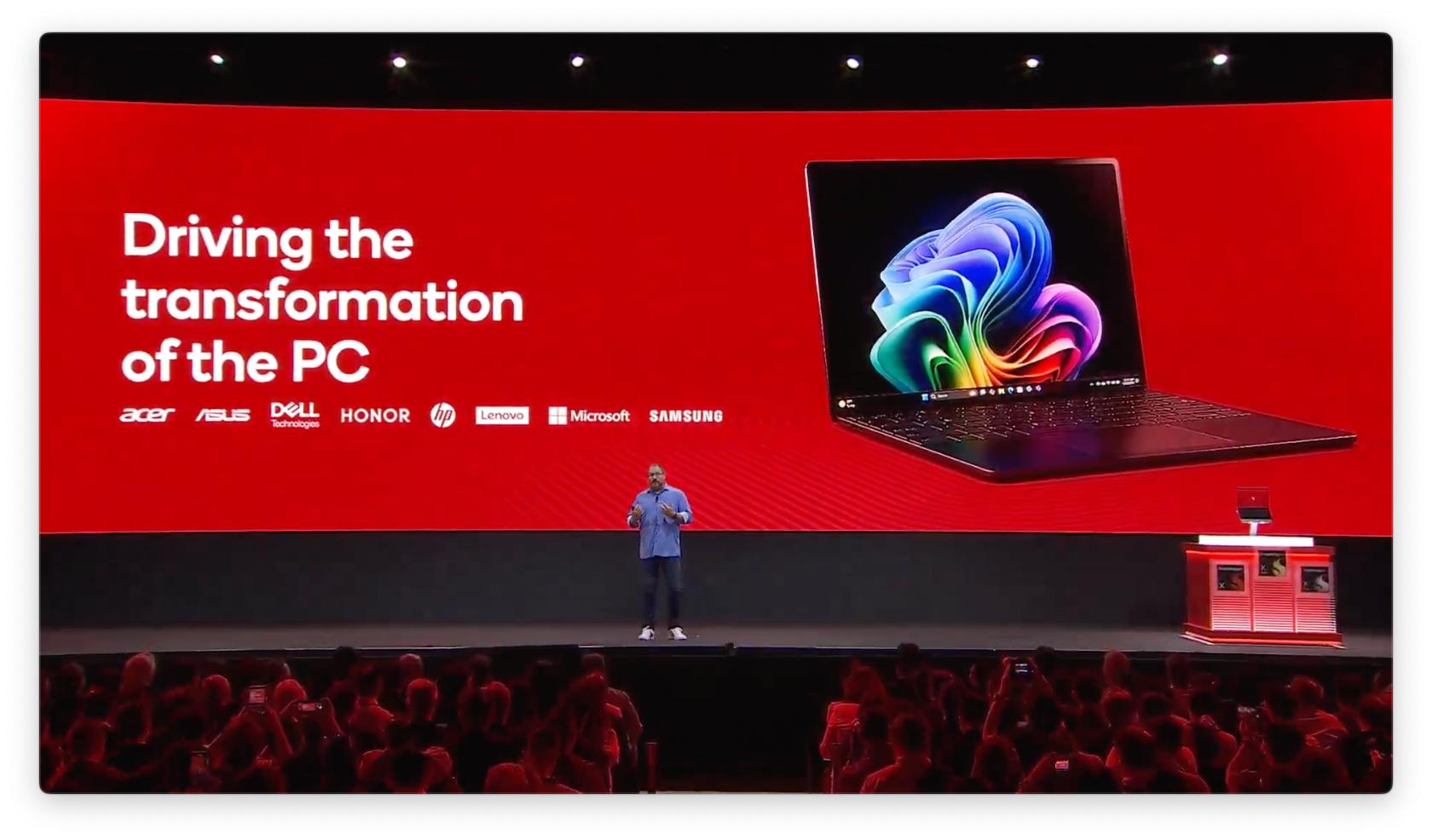Amon Unveils Qualcomm's AI PC Momentum and Re-Entry into Server CPU Market
![]() 05/20 2025
05/20 2025
![]() 490
490
On the eve of COMPUTEX 2025, Cristiano Amon, President and CEO of Qualcomm, delivered a keynote speech on May 19, spotlighting the company's latest advancements and strategic directions in AI PCs, edge AI computing, the gaming ecosystem, and global market positioning. Lei Tech was honored to be in attendance.
Amon emphasized that Snapdragon X-series processor-equipped Copilot+ PCs have emerged as a pivotal force in the AI PC era. Currently, over 85 Windows 11 AI+ PC designs based on this platform are either in development or have entered mass production, encompassing leading brands such as Acer, ASUS, Dell, HP, Lenovo, Samsung, and Honor.
Highlighting the event was ASUS's new Zenbook A14 notebook, powered by the Qualcomm Snapdragon X-series processor, which boasts the title of the world's lightest Copilot+ PC.

Photo courtesy of Qualcomm
More significantly, Qualcomm anticipates that by 2026, over 100 laptops priced at $600 (approximately RMB 4,325) will feature Snapdragon X-series processors. This signifies that nearly all Windows PC OEMs have embarked on the AI PC journey leveraging Qualcomm's platform.
These products will integrate NPUs with up to 45 TOPS of computing power, enabling the local execution of large language models (like Llama 2) to facilitate AI functions such as PPT generation, meeting summary organization, and image creation, thereby substantially boosting productivity and creativity.
Qualcomm's journey in the PC market hasn't been without challenges, including application compatibility issues in Windows on ARM and consumer skepticism.
In his speech, Amon addressed past game compatibility concerns, noting that over 1,400 games are now supported on the Snapdragon platform, including popular titles like Kingdom Come: Deliverance II. More notably, Epic Games' Fortnite will also officially support the Snapdragon platform, marking a significant breakthrough for Qualcomm in the Windows gaming ecosystem.

Photo courtesy of Qualcomm
While Qualcomm still faces challenges in high-end 3A games, the improvement in adaptation toolchains and virtualization layers within the ARM ecosystem is rapidly closing this gap.
As the native 64-bit Windows on ARM ecosystem accelerates its growth, mainstream software vendors are joining the ARM adaptation plan, and the need for system-level AI acceleration is on the rise. Qualcomm's trend of "reshaping" the PC experience is becoming increasingly unstoppable. Amon emphasized that Qualcomm will "continue to deepen its presence in the PC market."

Photo courtesy of Qualcomm
Additionally, Amon reiterated Qualcomm's commitment to advancing "Hybrid AI," a collaborative computing model between terminals and the cloud. He believes that in the foreseeable future, complex large models will primarily run in the cloud, but terminals will prioritize high-frequency user-device interactions and privacy data processing.
While achieving truly "killer applications" for terminal-side AI is still a work in progress, Qualcomm is continuously enhancing the "foundation" of terminal-side AI. This includes supporting more large language models capable of local execution, enabling AI assistants to process voice commands, generate document summaries, and create images locally without an internet connection, significantly improving response speed and privacy security.
Furthermore, Qualcomm offers developers over 75 pre-optimized models through AI Hub, enabling AI applications to truly reside on terminals, not solely reliant on the cloud.
Qualcomm officially confirmed its re-entry into the server CPU market, developing custom data center CPUs designed to interface with Nvidia AI chips. "By integrating our custom processors with Nvidia's rack-level architecture, we are advancing a shared vision to deliver high-performance, energy-efficient computing to data centers," said Amon.
In addition to signing a memorandum of cooperation with HUMAIN, a subsidiary of Saudi Arabia's Public Investment Fund, Qualcomm plans to establish advanced AI data centers locally and provide hybrid AI service solutions spanning from the cloud to the edge.
As AI PCs enter a phase of rapid development, Amon's speech serves not only as a showcase of Qualcomm's technological roadmap and ecological layout but also as a declaration to the industry: from terminal devices to data centers, from consumer scenarios to enterprise markets, Qualcomm is striving to redefine its role with a comprehensive AI computing system spanning the edge and cloud.
Challenges persist, but the pace of change has intensified. In 2025, as AI reshapes PC experiences, Qualcomm stands as a true harbinger of renewal.







